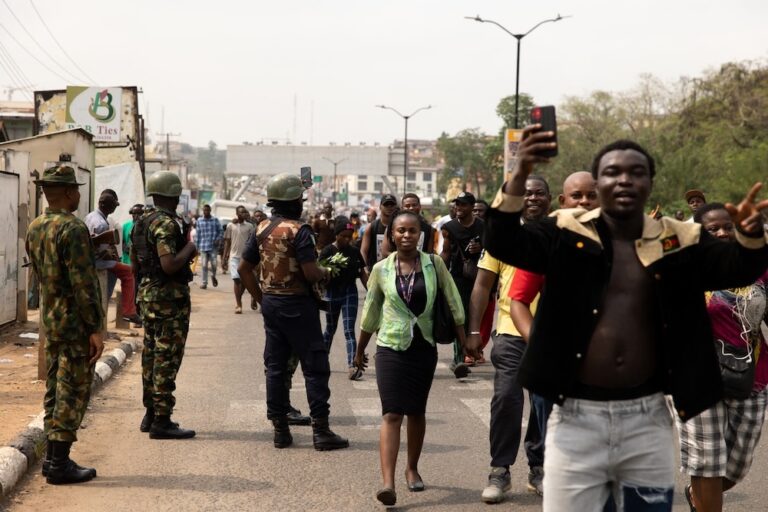(MRA/IFEX) – On 10 October 2006, the Nigerian government withdrew the charges of sedition against Daar Communications Limited, owners of African Independent Television (AIT), and one of its assistant managers, Mr. Mike Gbenga Aruleba. However, it retained its charges against Independent Newspapers Limited (INL), publishers of the “Daily Independent” newspaper, and its aviation correspondent, Rotimi […]
(MRA/IFEX) – On 10 October 2006, the Nigerian government withdrew the charges of sedition against Daar Communications Limited, owners of African Independent Television (AIT), and one of its assistant managers, Mr. Mike Gbenga Aruleba.
However, it retained its charges against Independent Newspapers Limited (INL), publishers of the “Daily Independent” newspaper, and its aviation correspondent, Rotimi Durojaiye.
Mallam Salihu Aliyu, director of public prosecution (DPP), moving the motion for discontinuance of the trial, said that Aruleba and Daar Communications Ltd had shown sufficient remorse.
Aliyu said: “We are satisfied that Aruleba and Daar Communications have shown enough remorse on this matter to make us discontinue their trial. I therefore urge the court to so order”.
The DPP said the trial of INL and Durojaiye would continue because they were not “remorseful.”
The government said it was taking the charges against INL and Durojaiye to the Appeal Court to determine the constitutionality of the country’s sedition laws before proceeding with the case. Justice Babs Kuewumi of the Federal High Court Abuja, upon hearing the cases, discharged Aruleba and Daar Communications while staying the proceedings on the other case, pending the Appeal Court decision.
Aruleba, AIT, Durojaiye and the INL were arraigned on a six-count charge of alleged conspiracy to commit a seditious act against President Olusegun Obasanjo on 27 June, at a Federal High Court Abuja. This followed the arrest of Durojaiye on 25 June and Aruleba on 26 June.
But in a preliminary objection filed by counsel to the accused persons, Mr. Femi Falana said that the four-count charge of sedition brought against his clients was “incompetent”. He said the offence of sedition under section 51 of the Criminal Code Act was declared illegal and unconstitutional in the case of Chief Arthur Nwankwo vs The State (1985) 6NWLR, P. 228.
In the objection brought pursuant to section 38 and 41 of the 1999 Constitution and Article 9 and 10 of the African Charter on Human and Peoples’ Rights (Ratification and Enforcement) Act Cap. 10 Laws of the Federation 1990, Falana argued that the case constituted a gross abuse of the court process.


